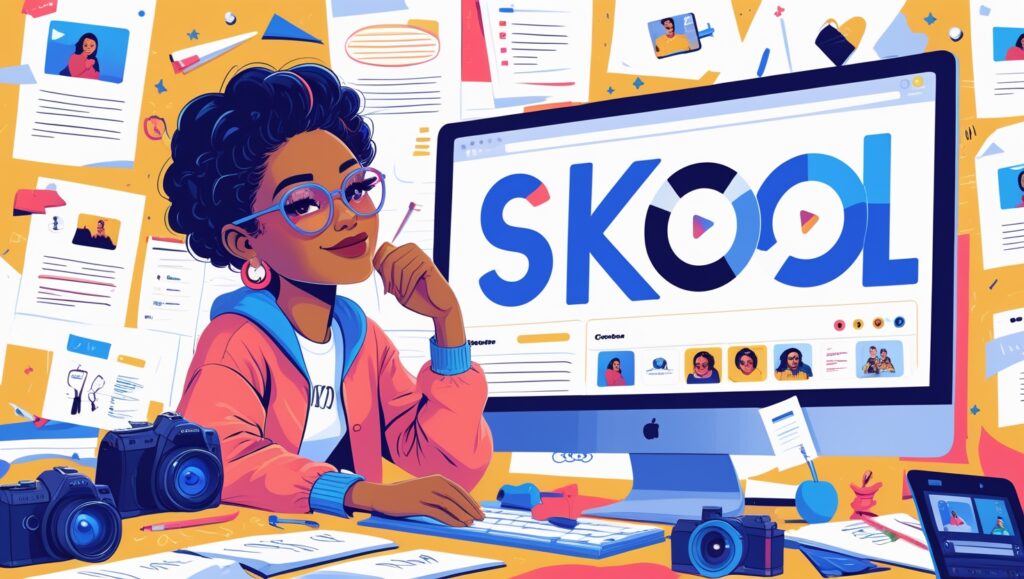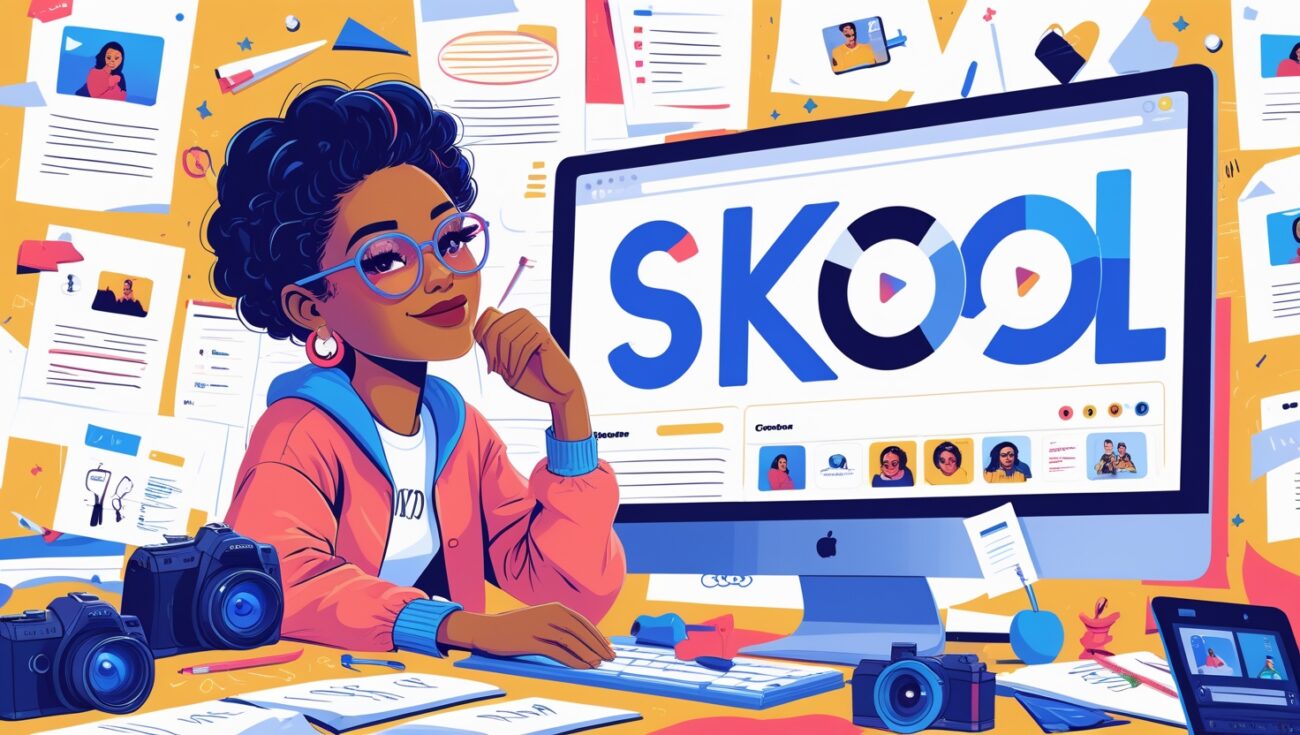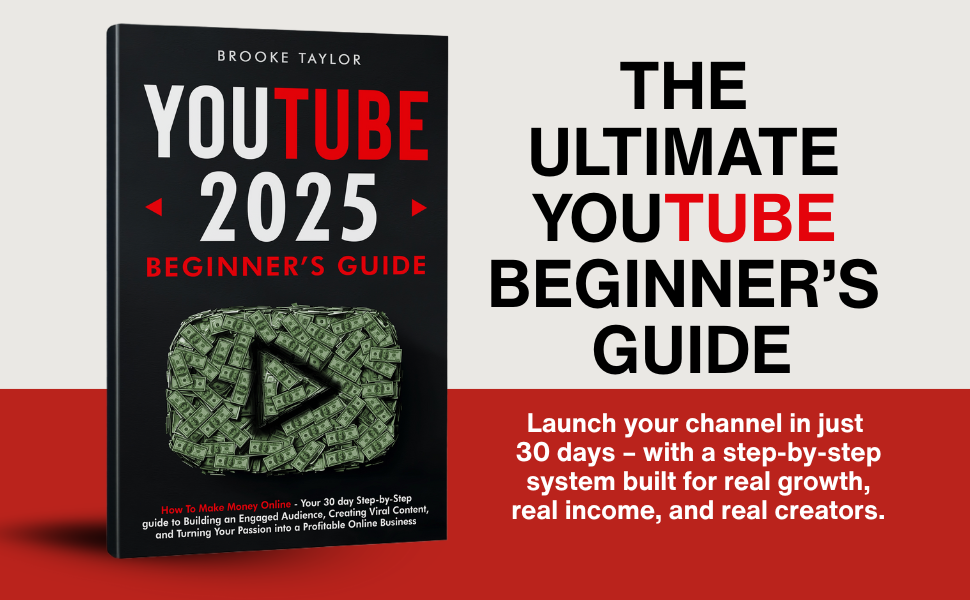Why Skool Is the Perfect Tool for Content Creators
As a content creator, I’ve spent years jumping between platforms, plugins, and programs trying to piece together a system that actually works. I needed a place to host my videos, connect with my audience, build a community, and get paid — but nothing ever felt smooth. That changed the day I discovered Skool.
Skool isn’t just another community platform. It’s the only tool I’ve found that truly understands what creators like me need to build, scale, and monetize our work. If you’re tired of juggling ten different apps, or if you feel stuck trying to grow your audience inside platforms you don’t own — this post is for you.
Let me explain why I believe Skool is the perfect all-in-one tool for content creators.

Table of Contents
Everything I Need, All in One Place
Before switching to Skool, my setup looked like a mess. I hosted my videos on one platform, built community on another, used a separate tool for coaching calls, and a whole different service to process payments. I was exhausted managing it all.
Skool simplified my workflow. With one login, I now manage my classroom, my community, my calendar, and even subscriptions — all from a single dashboard. It freed up so much time, and gave me more energy to focus on creating content and helping my audience.
No Distractions, Just Learning
When I used to host my groups on Facebook, engagement was all over the place. Members got distracted by newsfeeds, ads, and unrelated posts. With Skool, everything is distraction-free. It’s clean, focused, and built around intentional interaction.
My audience actually watches my lessons, shows up to live sessions, and participates in the community — all because the platform is designed to keep people learning and connecting.
Built-In Tools for Engagement
One of my favorite features in Skool is the gamified leaderboard. It sounds simple, but it works. Members earn points by participating — commenting, liking, watching lessons — and that small element of fun leads to way more engagement.
I used to struggle to get feedback or spark discussion. Now, my community is active daily, helping each other, and staying accountable. That’s huge for any creator who wants to build long-term trust.
Monetization Is Simple and Scalable
Let’s talk about money. As a content creator, you need tools that help you grow income without tech headaches. Skool allows me to charge for access to my community, courses, or coaching — without needing Stripe setups or checkout pages.
People join, pay, and access everything automatically. I don’t touch a thing. It’s truly passive income, and the recurring model makes my business feel stable for the first time.
If you want to try it yourself, here’s my Skool affiliate link to sign up. I genuinely recommend it.
The Platform Grows With You
What I love most about Skool is how well it scales. Whether you’re starting with 10 members or 1,000, the platform performs the same. You’re not constantly upgrading plans, hiring developers, or stressing about outgrowing it.
And as I add new courses, create bonus content, or offer 1-on-1 coaching, I can keep everything inside the same community. Members never have to leave the space — which means more time with me and more value for them.
My Brand Looks More Professional
I’m not a designer, but I care about how my brand is perceived. Skool gives me a clean, modern-looking group without needing to hire anyone. It instantly made my content feel more premium.
Students and clients commented on how “organized” and “legit” everything felt compared to what I used before. That trust translated into more sales — and better reviews.
No More Platform-Hopping
If you’re like me, you’ve probably tried platforms like Kajabi, Thinkific, or Teachable. They’re fine for certain things — but none of them gave me a community-first experience. And none of them felt like they were truly built for creators who want to connect, not just sell.
Skool is different. It’s not just about delivering lessons — it’s about creating an environment where people want to return, learn, and grow.
I Own the Experience
One of the most overlooked advantages of Skool is ownership. Unlike Facebook, I’m not worried about getting banned or restricted. Unlike Instagram or TikTok, I’m not at the mercy of algorithms.
I control the community, the content, the pricing, and the access. That’s real leverage — and as a creator, it means I’m finally building something on solid ground.
The Learning Curve Is Basically Zero
Skool’s interface is so intuitive that I never needed a tutorial. I uploaded my first course in minutes. Set up a call calendar. Created custom categories for discussions. It’s designed to feel natural — and that means less time learning, more time creating.
If you’ve ever felt overwhelmed trying to launch a course or paid group, Skool will feel like a breath of fresh air.
It Makes Selling Feel Natural
When someone joins my group, they see all my content, events, and products in one place. I don’t have to pitch hard — they naturally discover what I offer as they engage.
This organic discovery process feels authentic. I’m not chasing leads. I’m building real relationships — and Skool makes that possible.
Support and Updates That Actually Matter
I’ve seen Skool roll out powerful updates based on user feedback. Their team actually listens. That tells me they’re invested in helping creators succeed long-term, not just selling a tool and walking away.
Having that kind of support behind the scenes makes me feel secure, especially when I rely on the platform to run my business daily.
Final Thoughts
If you’re serious about building a digital business as a content creator, I can confidently say that Skool is the best platform I’ve found. It saves me time, increases my income, and finally gives me one place to teach, connect, and grow.
Use my affiliate link to try Skool — I only promote what I actually use, and this platform has transformed the way I work.
One unexpected benefit I noticed after moving to Skool was how much more clarity I had in running my community. I used to feel scattered — switching tabs constantly, copying links, answering the same questions. Now, everything is centralized. That peace of mind helps me stay productive and creative.
Another big win was the ability to offer group coaching directly inside Skool. I host my weekly calls, post replays in the classroom, and schedule reminders in the built-in calendar. My members never miss an update, and I don’t have to deal with third-party scheduling tools anymore.
I also love that my members can build relationships with each other. Unlike traditional course platforms where it’s just you talking at them, Skool encourages two-way interaction. The community tab becomes a hub where members support each other, share wins, and ask questions. That increases retention — and it helps my members succeed faster.
Content delivery is another area where Skool shines. I no longer worry about broken video links or clunky LMS layouts. I just upload my videos, add supporting files, and organize everything into sections. When a new member joins, they immediately know where to start.
I’ve also noticed that Skool works well on mobile. Whether my members are on desktop or scrolling on their phones, the experience is smooth and responsive. That accessibility helps increase course completion rates and keeps the momentum going inside the community.
Another plus is the simplicity of billing. Members can subscribe with one click, and I get paid every month automatically. I don’t have to chase invoices, send reminders, or manually approve access. Skool handles all of it, so I can focus on teaching and growing.
Let’s not forget the SEO benefits. Skool groups can be indexed by Google (if you choose to make them public), and that means more organic traffic for your brand. I’ve had new leads find my group through search — without spending a dollar on ads.
The content ownership aspect also gives me peace of mind. On YouTube or TikTok, you’re always at risk of content being removed or demonetized. But on Skool, I own the space, the videos, and the relationships. That kind of control is rare in today’s creator economy.
I’ve even started to build mini-courses and bonus content just for my Skool group. Because the platform supports layered access and hidden modules, I can offer exclusive content to members without needing another tool. That flexibility makes upselling easy and natural.
My customer support time has also gone down dramatically. Instead of answering emails, I post pinned announcements and tutorials right inside the group. Members find what they need, and I spend less time repeating myself.
As the creator economy grows, platforms will come and go. But what won’t change is the need for a simple, reliable, community-driven solution that helps creators earn what they’re worth. That’s why I believe Skool is here to stay — and why I’m all in.
If you’ve been on the fence, I highly recommend you try Skool through my affiliate link. It’s the one tool I use daily that genuinely makes my work easier — and more profitable.







